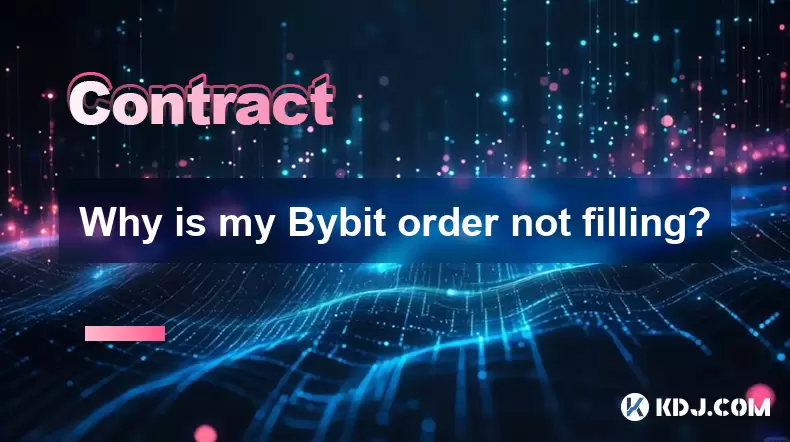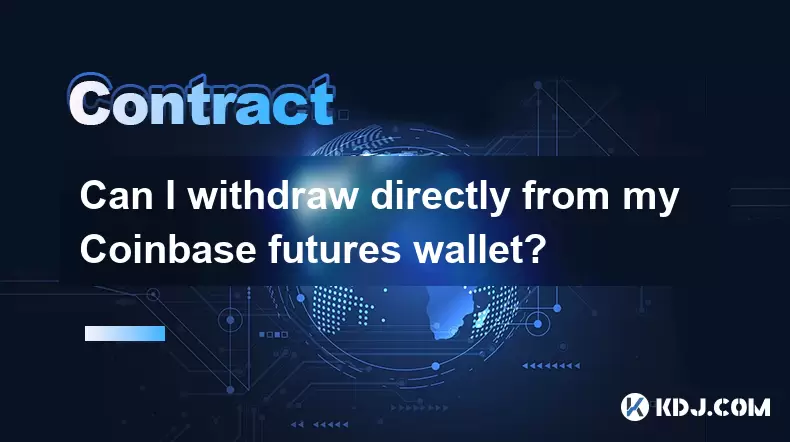-
 Bitcoin
Bitcoin $117400
-0.46% -
 Ethereum
Ethereum $3768
0.60% -
 XRP
XRP $3.551
2.09% -
 Tether USDt
Tether USDt $1.000
0.00% -
 Solana
Solana $203.2
11.30% -
 BNB
BNB $770.9
1.92% -
 USDC
USDC $0.9999
0.01% -
 Dogecoin
Dogecoin $0.2709
-0.02% -
 Cardano
Cardano $0.9024
4.49% -
 TRON
TRON $0.3139
0.60% -
 Hyperliquid
Hyperliquid $45.60
-1.41% -
 Stellar
Stellar $0.4730
-1.34% -
 Sui
Sui $4.025
2.15% -
 Chainlink
Chainlink $19.79
2.19% -
 Hedera
Hedera $0.2724
-2.39% -
 Avalanche
Avalanche $25.93
3.05% -
 Bitcoin Cash
Bitcoin Cash $524.0
-1.83% -
 Shiba Inu
Shiba Inu $0.00001558
0.50% -
 Litecoin
Litecoin $116.7
-0.30% -
 UNUS SED LEO
UNUS SED LEO $8.996
0.00% -
 Toncoin
Toncoin $3.334
1.83% -
 Polkadot
Polkadot $4.506
0.34% -
 Uniswap
Uniswap $10.99
4.83% -
 Ethena USDe
Ethena USDe $1.001
0.03% -
 Pepe
Pepe $0.00001461
3.17% -
 Monero
Monero $320.3
-1.01% -
 Bitget Token
Bitget Token $4.935
0.36% -
 Dai
Dai $0.9998
0.00% -
 Aave
Aave $322.4
-1.25% -
 Bittensor
Bittensor $455.6
9.33%
Are Bitcoin futures legal in the USA?
Bitcoin futures are legal in the U.S. when traded on CFTC-approved exchanges like CME or CBOE, offering regulated speculation on Bitcoin’s price without owning the asset.
Jul 22, 2025 at 06:07 am

Understanding Bitcoin Futures in the United States
Bitcoin futures are derivative contracts that allow traders to speculate on the future price of Bitcoin without owning the underlying asset. In the United States, the legality and regulation of these instruments are governed by specific federal agencies. The Commodity Futures Trading Commission (CFTC) is the primary regulatory body responsible for overseeing futures markets, including Bitcoin futures.
The CFTC officially classified Bitcoin as a commodity in 2015, which placed it under its jurisdiction. This classification paved the way for the legal trading of Bitcoin futures contracts on regulated exchanges. The Chicago Board Options Exchange (CBOE) and the Chicago Mercantile Exchange (CME) were among the first to launch Bitcoin futures in late 2017.
Important: Trading Bitcoin futures in the USA is legal only when conducted through CFTC-approved exchanges and platforms.
Regulatory Framework for Bitcoin Futures
The CFTC’s oversight ensures that Bitcoin futures trading adheres to strict compliance standards. These include anti-fraud and manipulation provisions, reporting requirements, and capital adequacy rules for exchanges. Additionally, the Securities and Exchange Commission (SEC) may become involved if the futures contracts are linked to securities or if they involve investment vehicles like ETFs.
The CME Group, which offers Bitcoin futures contracts, is regulated by the CFTC and complies with all federal laws. The contracts are cash-settled, meaning no actual Bitcoin changes hands. Instead, the settlement is based on the Bitcoin Reference Rate (BRR), which is calculated using data from major spot exchanges.
- CFTC approval is required for any exchange offering Bitcoin futures in the US.
- Traders must use regulated brokers and platforms to participate in legal Bitcoin futures trading.
- Trading on offshore or unregulated platforms may violate US laws.
Differences Between Futures and Spot Trading
It is crucial to distinguish between Bitcoin futures trading and spot trading. Spot trading involves the direct buying and selling of Bitcoin at current market prices. In contrast, futures trading involves contracts that obligate the buyer or seller to transact at a predetermined price and date in the future.
The CFTC regulates futures trading, while the SEC regulates securities and investment products. Spot Bitcoin transactions generally fall outside the jurisdiction of the SEC unless they involve securities-like instruments. However, the IRS treats Bitcoin as property for tax purposes, which affects how profits and losses are reported.
Key difference: Bitcoin futures are legal and regulated in the US, while certain spot trading activities may face scrutiny depending on the platform and structure.
Eligibility and Requirements for US Traders
To legally trade Bitcoin futures in the United States, individuals must meet specific eligibility criteria. These include:
- Opening an account with a CFTC-regulated broker.
- Providing Know Your Customer (KYC) and Anti-Money Laundering (AML) documentation.
- Maintaining a minimum account balance or margin, depending on the broker and contract size.
Traders should also be aware of margin requirements, leverage limits, and position limits set by the exchanges and brokers. Some platforms may restrict access to certain derivatives based on the trader’s residency or account type.
Legal Risks and Enforcement Actions
Although Bitcoin futures are legal when traded on approved platforms, the CFTC has taken enforcement actions against entities offering unregulated crypto derivatives. In several cases, offshore exchanges and unregistered brokers have been penalized for offering illegal futures contracts to US residents.
Traders who engage in futures trading on unlicensed platforms may face legal consequences, including fines or restrictions on future trading activities. It is essential to verify the regulatory status of any exchange or broker before opening a futures trading account.
Important: Always confirm that the platform you use is registered with the CFTC and operates under US law.
Frequently Asked Questions (FAQ)
Q: Can I trade Bitcoin futures on a foreign exchange if I'm a US resident?
A: Trading Bitcoin futures on foreign exchanges may be illegal if the platform is not registered with the CFTC or does not comply with US regulations. US residents are advised to use only CFTC-approved platforms.
Q: Are Bitcoin options also legal in the USA?
A: Yes, Bitcoin options are legal if offered through a regulated exchange such as the CBOE or CME. These options are subject to the same regulatory oversight as Bitcoin futures.
Q: What happens if I trade Bitcoin futures illegally?
A: Engaging in unauthorized futures trading may result in legal penalties, including fines or account restrictions. The CFTC actively monitors and prosecutes violations of US derivatives laws.
Q: Do I need to pay taxes on Bitcoin futures profits?
A: Yes, profits from Bitcoin futures are subject to taxation. The IRS treats gains from futures trading as capital gains or ordinary income, depending on the trader’s status and holding period.
Disclaimer:info@kdj.com
The information provided is not trading advice. kdj.com does not assume any responsibility for any investments made based on the information provided in this article. Cryptocurrencies are highly volatile and it is highly recommended that you invest with caution after thorough research!
If you believe that the content used on this website infringes your copyright, please contact us immediately (info@kdj.com) and we will delete it promptly.
- Bitcoin, Trump Media, and a Stock Boost: A New York Minute on Crypto & Politics
- 2025-07-22 15:30:12
- Solana Ecosystem Tokens Surge: Riding the Wave to New Highs?
- 2025-07-22 15:30:12
- Bitcoin, Render Token, and Resistance Levels: A New Yorker's Take
- 2025-07-22 15:50:12
- MoonBull's Whitelist Mania: Your Last Shot at 100x Crypto Gains?
- 2025-07-22 10:30:12
- Meme Coins in 2025: Explosive Gains or Fading Fad?
- 2025-07-22 10:30:12
- Kim Keon-hee Crypto Probe: Scandal Rocks South Korea's Political Scene
- 2025-07-22 10:50:12
Related knowledge

Why is my Bybit order not filling?
Jul 22,2025 at 03:50pm
Understanding Order Types on BybitWhen your Bybit order isn’t filling, the first step is to verify the order type you selected. Bybit offers several t...

What is Bybit futures trading?
Jul 22,2025 at 04:14pm
Understanding Bybit Futures TradingBybit futures trading refers to the process of buying and selling futures contracts on the Bybit exchange, a platfo...

Can I withdraw directly from my Coinbase futures wallet?
Jul 22,2025 at 02:14pm
Understanding Coinbase Futures WalletsCoinbase does not currently offer a dedicated futures wallet within its standard Coinbase app or platform. Futur...

Is Coinbase futures available in Canada?
Jul 22,2025 at 02:57pm
Understanding Coinbase Futures and Their AvailabilityCoinbase Futures refers to the financial instruments offered on Coinbase’s derivatives trading pl...

Can you trade options on Coinbase?
Jul 22,2025 at 03:42pm
Understanding Options TradingOptions trading involves contracts that give the buyer the right—but not the obligation—to buy or sell an asset at a pred...

How to close an open position in Coinbase futures?
Jul 22,2025 at 03:00pm
Understanding Open Positions in Coinbase FuturesWhen trading futures on Coinbase, an open position refers to a trade that has been initiated but not y...

Why is my Bybit order not filling?
Jul 22,2025 at 03:50pm
Understanding Order Types on BybitWhen your Bybit order isn’t filling, the first step is to verify the order type you selected. Bybit offers several t...

What is Bybit futures trading?
Jul 22,2025 at 04:14pm
Understanding Bybit Futures TradingBybit futures trading refers to the process of buying and selling futures contracts on the Bybit exchange, a platfo...

Can I withdraw directly from my Coinbase futures wallet?
Jul 22,2025 at 02:14pm
Understanding Coinbase Futures WalletsCoinbase does not currently offer a dedicated futures wallet within its standard Coinbase app or platform. Futur...

Is Coinbase futures available in Canada?
Jul 22,2025 at 02:57pm
Understanding Coinbase Futures and Their AvailabilityCoinbase Futures refers to the financial instruments offered on Coinbase’s derivatives trading pl...

Can you trade options on Coinbase?
Jul 22,2025 at 03:42pm
Understanding Options TradingOptions trading involves contracts that give the buyer the right—but not the obligation—to buy or sell an asset at a pred...

How to close an open position in Coinbase futures?
Jul 22,2025 at 03:00pm
Understanding Open Positions in Coinbase FuturesWhen trading futures on Coinbase, an open position refers to a trade that has been initiated but not y...
See all articles

























































































